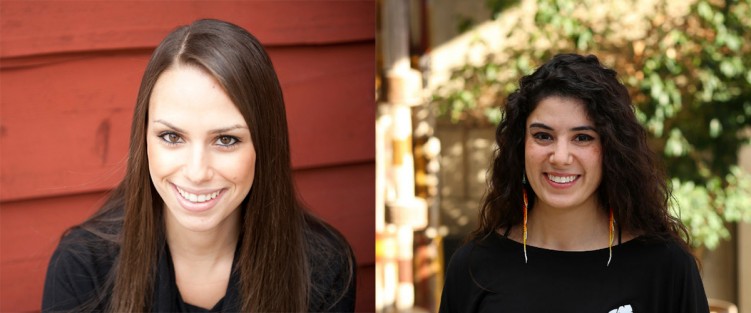This article appears in The WholeNote as part of our collaboration in the Emerging Arts Critics program.
 On the evening of Friday June 26, 2020, the Kitchener-Waterloo Symphony (KWS) presented its final Friday night online video broadcast of archival concerts in response to the COVID-19 pandemic. For this performance the KWS showed a pre-recording of Tchaikovsky’s Symphony No.4, conducted by Edwin Outwater, followed by a pre-recording of We’re Not Done Drumming, composed by Laura Sgroi with poetry by Rebecca Thomas. Though originally performed in different concerts, the pairing of the two for this broadcast brought to light the multifaceted issues of colonization, the displacement of Indigenous people – and suggested one path forward for how these issues might be approached in the context of western classical music.
On the evening of Friday June 26, 2020, the Kitchener-Waterloo Symphony (KWS) presented its final Friday night online video broadcast of archival concerts in response to the COVID-19 pandemic. For this performance the KWS showed a pre-recording of Tchaikovsky’s Symphony No.4, conducted by Edwin Outwater, followed by a pre-recording of We’re Not Done Drumming, composed by Laura Sgroi with poetry by Rebecca Thomas. Though originally performed in different concerts, the pairing of the two for this broadcast brought to light the multifaceted issues of colonization, the displacement of Indigenous people – and suggested one path forward for how these issues might be approached in the context of western classical music.
The first movement of Tchaikovsky’s Symphony No.4 opened up with the rich, deep sound of horns in a solemn proclamation of duty and a call to arms. In the aftermath of this opening, the violins entered with a breathless tune that caressed the listeners into a false sense of hope – for there was no rest in this first movement. Ever moving with anticipation and anxiety, the winds and strings climbed into a vibrant crescendo met by the grand crashing of percussion.
Tchaikovsky’s second movement ushered in an empty feeling induced by the high, lonely sounds of the oboe’s solitary notes. The violins echoed this call but soon seemed to resonate with a certain cold beauty of their own, lifting the audience up in an empty promise of safety and hope while the high-pitched cries of the winds maintained a desolate sorrow. The third movement offered a shift, emerging with an upbeat lively rhythm – though underscored by the low, deep murmur of the percussion instruments, evoking a sense of something brooding underneath the surface. The fourth movement dismissed this subtle warning and ascended to a climax of horns, cymbals, percussions and winds – a bright and brilliant finish that filtered out into a calm silence.
The feeling of unease that seeps into the shadows of Tchaikovsky’s work is the main discourse of Thomas and Sgroi’s We’re Not Done Drumming. In her opening remarks specifically garnered for this livestream event, Thomas, a Mi’kmaq poet and spoken-word artist, asked the audience to revisit the past and to try and understand the hardships Indigenous people have faced.
The first movement of the collaboration between Sgroi and Thomas was imbued with a majestic quality. The high notes of the clarinets and strong, deep voices of the bassoons created an atmosphere of something magical and far in the distance. When Thomas’s words first appeared in the score, the violins began to create a low dark sound, like the coming of a storm – a deep underbelly over which Thomas recounted an unromanticised history of Indigenous experience. The second movement became more intense as the destruction of Indigenous culture was depicted through the conversation of two distinct voices. Through her words Thomas illuminated the betrayal of Indigenous people: “You locked us in place, enough is enough, you lied, you were pleased with our despair.” Then the violins and cellos entered with a new intensity and Thomas assumed the voice of the settler in the conversation: “you should be pleased we taught you savages how to read.” In the wake of her powerful words the precise notes of the flutes and clarinets in agreement with the rich vibrations of the percussion invaded the space in a depiction of colonial violence.
The third movement brought a new quality to the piece. The violins dragged along a sad melancholy feeling, supported by elongated notes in the winds. But then Thomas proclaimed, “Like it or not, we are in this together,” and warm vibrant horns and guttural drums transported the audience to a place of majesty. We’re Not Done Drumming was a voice for Indigenous people and a call to action.
Tchaikovsky’s Symphony No.4 and We’re Not Done Drumming are two pieces in conflict with one another. Tchaikovsky’s work, created in the late 1800s, is a staple of European classical music – whereas the collaboration of Sigroi and Thomas, composed in 2019, deliberately communicated the oppression of Indigenous people under the guise of westernization. Yet there are glimmers of regret in Tchaikovsky’s music that are brought to light in Thomas’s words, demonstrating the benefits of hearing these pieces back-to-back. The Kitchener-Waterloo Symphony’s decision to configure an evening composed of these pieces was an important statement on remembering our past as we go into our future.
The Kitchener-Waterloo Symphony presented Tchaikovsky’s Symphony No.4 and Sgroi and Thomas’s We’re Not Done Drumming as an online video broadcast, on Friday, June 26, 2020.
Nicole Decsey is a writer and performance artist based in Toronto and Mississauga. She graduated from Ryerson University with a BFA in performance dance in June of 2019 and has been a freelance writer and editorial intern with the Dance Current since December of 2018.

